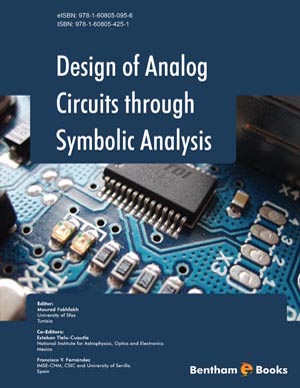Abstract
This chapter presents the CAFFEINE tool, which is a method for generating symbolic performance models of electronic circuits without any prior specification of an equation template. CAFFEINE uses SPICE simulation data, allowing it to handle strongly nonlinear circuits, statistical process variations, and a variety of analysis types. CAFFEINE expressions are canonical form functions: product-of-sum layers alternate with sum-of-product layers, as defined by a context-free grammar. Besides the attribute of interpretability, CAFFEINE models demonstrate lower prediction error than several state-of-the-art regression techniques including posynomials, projection-based quadratic models, boosted neural networks, piecewise polynomials / splines, kriging, and support vector machines. In addition, CAFFEINE is also useful in variation-aware modeling, behavioral modeling, and tradeoff modeling.
Keywords: Symbolic analysis, symbolic modeling, template-free modeling, performance modeling, CAFFEINE, canonical form function, SPICE accuracy, interpretability, integrated circuits, grammar, genetic programming, evolutionary algorithm, posynomial, regression, whitebox modeling, blackbox modeling, response surface modeling, template extraction.





















